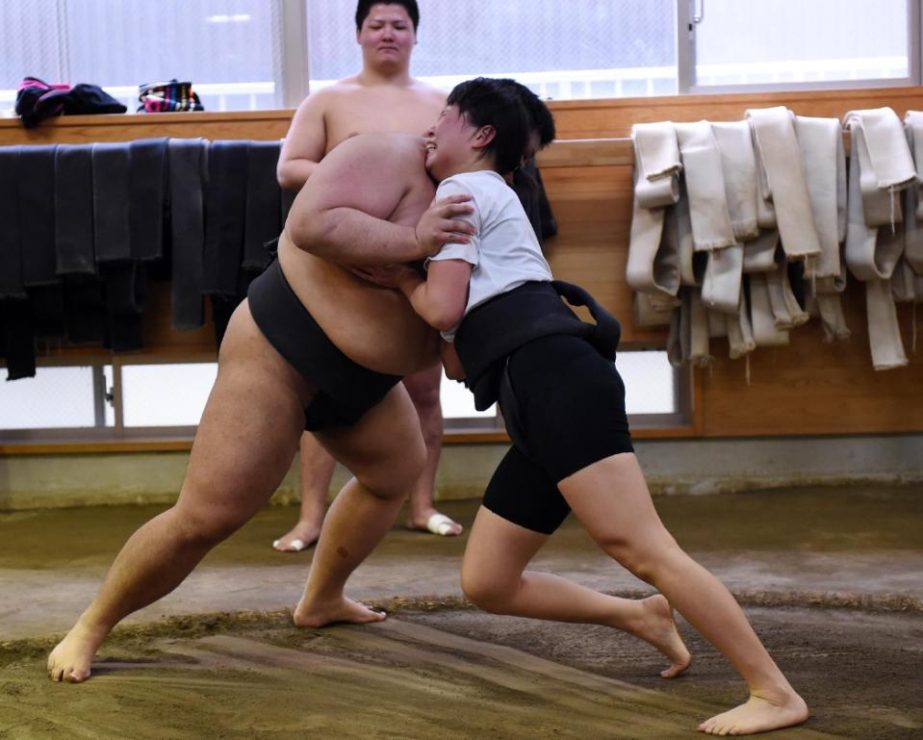
AFP, Tokyo :
Nineteen-year-old Sayaka Matsuo lies on the tatami mat as a personal masseur works on her neck and shoulders to squeeze out the knots.
But this is no pamper package with relaxing music or detoxifying mist. Matsuo is warming up for a head-clashing bout of Japan’s national sport — sumo.
Strapping her “mawashi” — loin cloth — over her lycra bike shorts, she squats into position, her 60-kilogramme (132-pound) frame squaring off against a man more than two-and-a-half times her weight.
The huge size difference is no obstacle for Matsuo, whose determination and technique shuffle her massive opponent across and out of the ring.
“I started sumo as a hobby. I feel a lot of pressure from my dad and my goal is to win the women’s Sumo World Championship one day,” she tells AFP.
As the daughter of a former professional sumo-wrestler, whose ring name was Sadanohana, Matsuo had a leg up into a sport not usually associated with women, and started to wrestle at just five years old.
Now she is part of a small, but growing band of female grapplers who are turning the tables on one of Japan’s oldest boys’ clubs.
Opening up the sport to women is part of an effort to legitimise sumo as a possible future Olympic event, Tokyo University’s Sumo Club coach Toshiaki Hirahara said.
But Hirahara is also quick to point out that the top-level wrestling millions of Japanese watch on television needs to preserve its religious and spiritual origins. “I think the fact that women cannot enter the sacred national dohyo (ring) is understandable as it is the realm of the gods,” he said.
“But the amateur league has nothing to do with gods, so let girls and boys do it equally.”
Sumo traces its origins back 2,000 years to a time when it was an integral part of the rituals of Japan’s native Shintoism, an animistic religion.
But the sport’s stock has fallen in recent years with claims of bout-fixing, illegal betting and bullying, including the death of a young apprentice wrestler in 2007.
It has also struggled to slough off claims that it is linked to the Yakuza, the country’s home-grown mob.

